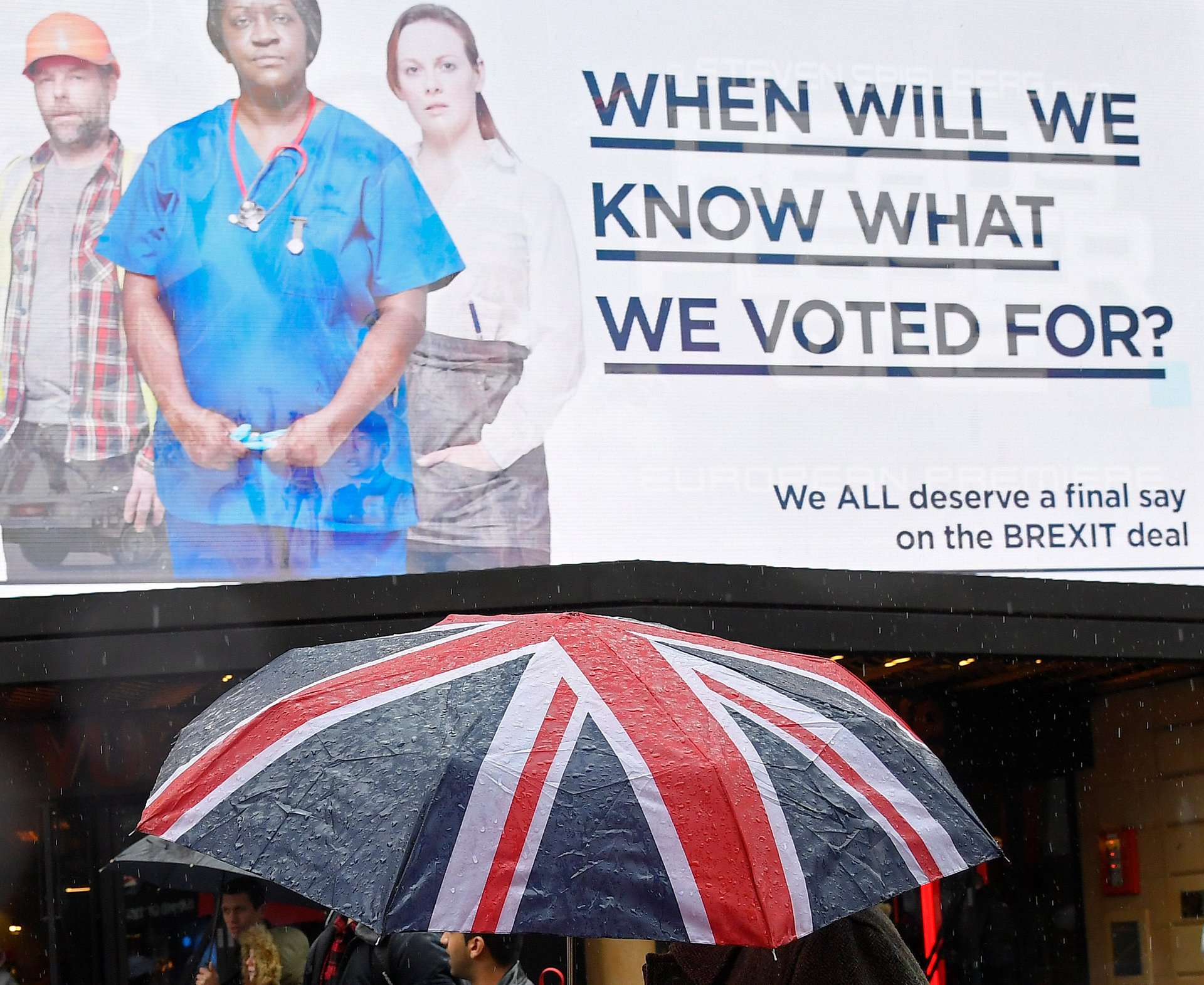The poor are dying almost a decade younger than the rich in the UK
A lot can happen within a decade. Unfortunately for many in the United Kingdom, they’ll never have that time.


A lot can happen within a decade. Unfortunately for many in the United Kingdom, they’ll never have that time.
New research out of the UK shows an alarming trend in longevity: among the nation’s poorest, life expectancy has fallen since 2011. Today, wealthier people are living nearly 10 years longer on average than those in the lowest socioeconomic classes.
It’s a deeply worrying indicator about the state of the nation’s health, senior researcher Majid Ezzati in a statement. When life expectancy among the poorest falls, its a sign that the most vulnerable in a society are left out of any of the collective gain.
The trend comes about amid a perfect storm of factors in the UK, the researchers wrote in their study, which was published Nov. 22 in the journal Lancet Public Health. “Working income has stagnated and benefits have been cut, forcing many working families to use food banks,” the statement reads, backing reports of recent deterioration in the social safety net in the country. “The price of healthy foods, like fresh fruit and vegetables, has increased relative to unhealthy, processed food, putting them out of the reach of the poorest.”
In addition, cuts in local government budgets have contributed to a withering health system. People suffering with cancer are being diagnosed too late, and those with conditions that include dementia are dying sooner than before for lack of care.
The poorest people wind up suffering the most by such cuts, which in turn impact their families. In 2016, kids under five from the poorest sectors of UK society were 2.5 times as likely to die as children from affluent families, the research shows.
According to United Nations data, 14 million people—a fifth of the UK population—live in poverty. Four million of those are more than 50% below the poverty line and 1.5 million are considered destitute.
The work, funded by Wellcome Trust, a biomedical research charity, analyzed National Statistics Office data on the 7.65 million deaths recorded in England between 2001 and 2016. What researchers found was that, for women, the life-expectancy gap between the richest and poorest increased from 6.1 years in 2001 to 7.9 years in 2016. On average, wealthier women in 2016 lived to about 86.7 years while their poorest counterparts lived 78.8 years. For men, the gap increased from 9 to 9.7 years. Wealthy men in 2016 lived until 83.8 compared to the poorest men who died at 74.
The researchers noted that the increase in the life-expectancy gap can be attributed to a handful of deadly illnesses: newborn deaths and children’s diseases, respiratory diseases, heart disease, lung and digestive cancers, and dementias. Many of those maladies are more common among the poor, who, for instance, have access to less fresh foods and more to processed foods that have been linked to respiratory and heart diseases. “Greater investment in health and social care in the most deprived areas will help reverse the worrying trends seen in our work,” the researchers of the study say.
The research aligns with a recently-published report by the UN special rapporteur on extreme poverty and human rights. The authors of that report were befuddled at how the world’s fifth-largest economy and global financial hub could allow such a longevity gap to continue to exist despite previous reports highlighting the disparity.
“Through it all, one actor has stubbornly resisted seeing the situation for what it is,” the UN statement says. “The government has remained determinedly in a state of denial.”
The 24-page UN report (pdf) detailed how government austerity measures during the global recession have whittled away at public safety-net programs that would otherwise work to stop health problems affected the poor before they result in unnecessary and premature deaths. The report noted that Brexit offers reason for concern in the future, as the UK’s economic growth rate is expected to take a hit.